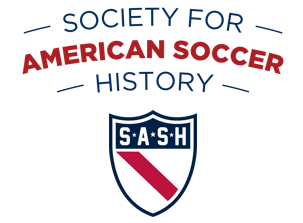Among the several good tournament runs that the U.S. men’s national team has had in recent years, one that tends to be mostly forgotten is the 1999 Confederations Cup. The 2009 Confederations Cup is well remembered, especially the victory over Spain, but not 1999, when the United States advanced through the first round from a group that included Brazil and Germany. It gave the host nation, Mexico, a down-to-the-wire battle in the semifinals, and coach Bruce Arena got a chance to employ the same strategy that he did to great advantage in the 2002 World Cup, using nearly his full roster.
The United States team needed something to restore its damaged reputation after the 1998 World Cup, and this tournament provided it. This was the first competitive event in which the United States had played under Arena, and it was looking as though the new coach had revived American fortunes with remarkable speed.
This tournament was the same one in which the United States had played in 1992, but it had since been expanded and moved from Saudi Arabia to Mexico (the name, previously the Intercontinental Cup, also had been changed). Seven years before, with only four teams, the tournament didn’t require a first round, just semifinals and a final. Now, the United States was placed in a first-round group with New Zealand, Brazil and Germany, with all three of its group games to be played in Guadalajara.
The United States started in unspectacular fashion by beating New Zealand, 2-1, on July 24. A loss to the Kiwis would have been an embarrassment. Goals by Brian McBride and Jovan Kirovski made sure that it didn’t happen.
Four days later it was Brazil, for whom Guadalajara was a favorite site, having been the Brazilians’ happy home in both the 1970 and 1986 World Cups. The Americans came out on the short end of a 1-0 score, but with a dose of pride nevertheless after having played maybe their best game ever against Brazil. The United States now was tied with Germany for second place in the group but had the edge in goal difference. A tie with Germany in their final first-round game would put the Americans into the semifinals, and they had beaten Germany by 3-0 in a friendly a few months before.
Against Germany, Arena took a gamble and got away with it. He knew that if the United States reached the semifinals it would be playing its fourth game in nine days, so he gave most of his regulars the day off. Advancing to the semis with players too worn out to play well wouldn’t have been much of a victory. He started only two of the same 11 who had started against Brazil two days before. The change didn’t seem to hurt against an opponent that was descending into the deepest slump the German national team had ever faced. Ben Olsen’s goal in the 23rd minute and Joe-Max Moore’s five minutes after halftime were two more than Germany could muster.
The United States’ semifinal opponent was Mexico, two days later in Mexico City, and again Arena made wholesale changes in his lineup, starting only three of the 11 who had started against Germany. As they had done the previous time they faced the Tricolores at the Azteca, the Americans played Mexico through a scoreless 90 minutes, but this was a knockout game, so there was overtime, and Cuauhtemoc Blanco’s golden goal in the 97th minute broke the tie. A good effort by goalkeeper Kasey Keller wasn’t enough to get the Americans into the final.
In the third-place game against demoralized Saudi Arabia, which had lost to Brazil by 8-2 in the semifinals, Arena fielded most of the same lineup that had beaten Germany. The Americans eased to a 2-0 win on goals by Paul Bravo and Brian McBride.
A version of this article originally appeared at Roger’s Big Soccer blog on November 2, 2011.
